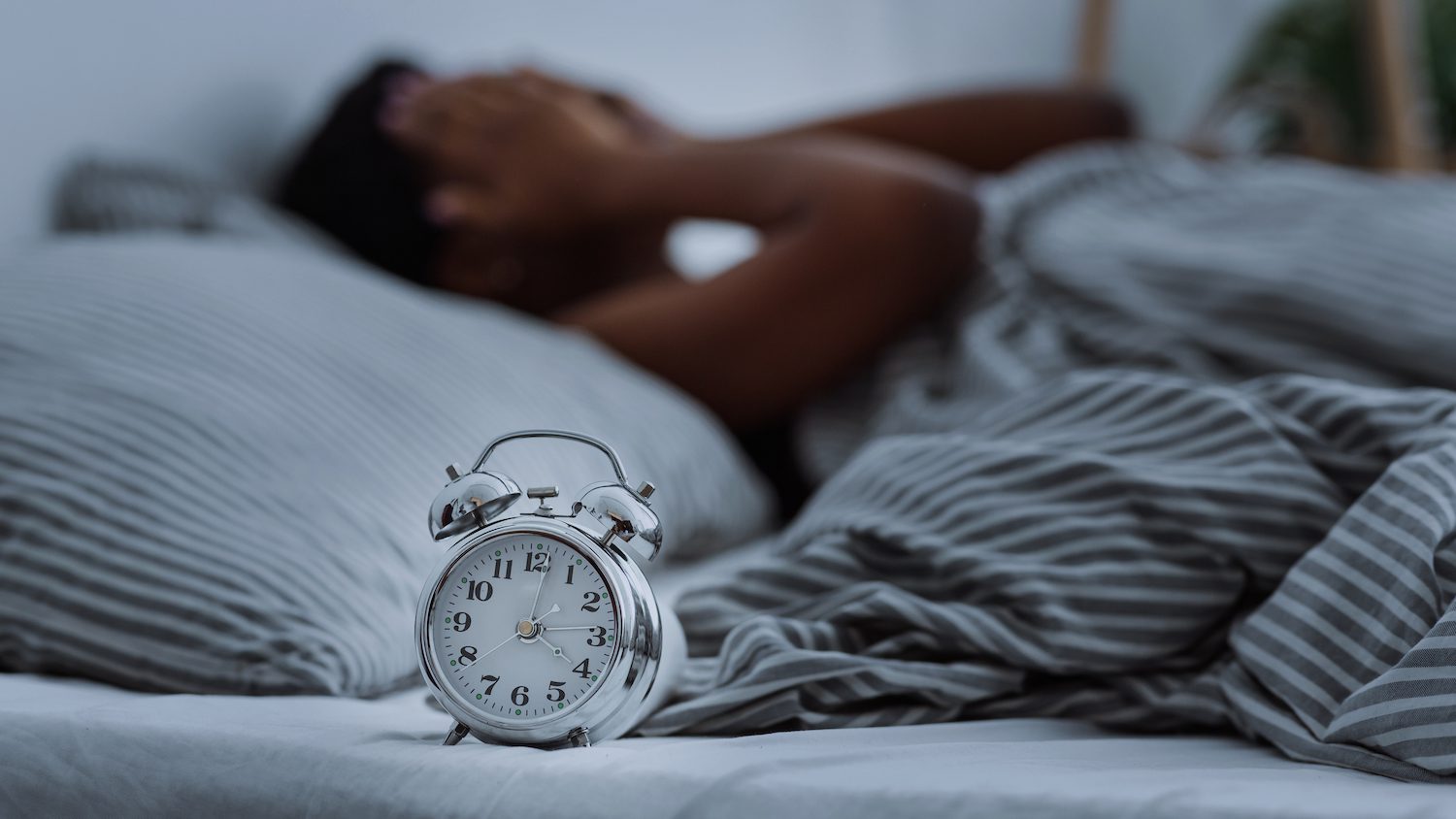This Is Why You Wake Up at the Same Time Every Single Night :

Do you find yourself waking up at the same time every night, feeling restless and unable to fall back asleep? If so, you're not alone. Many people experience this phenomenon, and it can be frustrating and exhausting. In this blog post, we'll explore some of the reasons why you may be waking up at the same time every night and what you can do about it.
Circadian Rhythm
Your circadian rhythm is a natural, internal process that regulates your sleep-wake cycle. This cycle is influenced by various factors, including light exposure, hormone levels, and temperature. If your circadian rhythm is disrupted, it can cause you to wake up at the same time every night.
Solution: Try to establish a consistent sleep schedule and stick to it, even on weekends. Exposure to natural light during the day can also help regulate your circadian rhythm. Avoid blue light exposure before bed by turning off electronic devices and dimming lights.
Stress and Anxiety
Stress and anxiety are common causes of disrupted sleep. If you're experiencing stress or anxiety, your body may produce cortisol, a hormone that can interfere with your sleep. Cortisol levels typically peak in the early morning, which can cause you to wake up.
Solution: Identify the source of your stress or anxiety and work to address it. Relaxation techniques like deep breathing, meditation, or yoga can help calm your mind and reduce stress levels. Consider talking to a therapist if your stress or anxiety is persistent or severe.
Diet and Lifestyle
What you eat and drink, as well as your lifestyle habits, can affect your sleep quality. Eating heavy or spicy foods, consuming caffeine or alcohol before bed, or engaging in stimulating activities before bed can all interfere with your sleep.
Solution: Avoid eating heavy or spicy foods before bed and limit caffeine and alcohol consumption. Establish a relaxing bedtime routine that includes activities like reading or taking a warm bath. Avoid stimulating activities like watching TV or using electronic devices before bed.
Medical Conditions
Certain medical conditions, like sleep apnea, restless leg syndrome, or acid reflux, can cause disrupted sleep. These conditions can cause you to wake up at the same time every night, often feeling uncomfortable or in pain.
Solution: Talk to your doctor if you suspect you have a medical condition that is interfering with your sleep. Treatment options may include medication, lifestyle changes, or a referral to a specialist.
In conclusion, waking up at the same time every night can be frustrating, but there are many potential solutions. By addressing the underlying cause of your sleep disruption, you can improve your sleep quality and wake up feeling refreshed and energized. Remember to establish a consistent sleep schedule, address sources of stress and anxiety, adopt healthy lifestyle habits, and seek medical advice if necessary.
Here are a few additional reasons why you might be waking up at the same time every night:
Environmental Factors
Environmental factors, such as noise, light, or temperature changes, can disrupt your sleep and cause you to wake up at the same time every night.
Solution: Make your sleeping environment as comfortable as possible. Consider using earplugs or white noise machines to block out noise. Use blackout curtains to keep your bedroom dark, and keep the temperature cool and comfortable.
Age-related Changes
As we age, our sleep patterns can change. Older adults often experience lighter sleep, more frequent awakenings, and earlier wake times.
Solution: Establish healthy sleep habits and stick to a consistent sleep schedule. Consider talking to your doctor if you're having persistent sleep problems or if your sleep changes are affecting your daily life.
Hormonal Changes
Hormonal changes, such as those related to menopause or menstruation, can cause disrupted sleep and awakenings.
Solution: Talk to your doctor about hormone replacement therapy or other treatments that can help alleviate symptoms. Establish healthy sleep habits, such as sticking to a consistent sleep schedule and avoiding stimulating activities before bed.
Remember, there is no one-size-fits-all solution to sleep problems. It's important to identify the underlying cause of your sleep disruption and develop a plan that works for you. By adopting healthy sleep habits and addressing sources of stress or discomfort, you can improve your sleep quality and wake up feeling refreshed and energized.





0 Comments